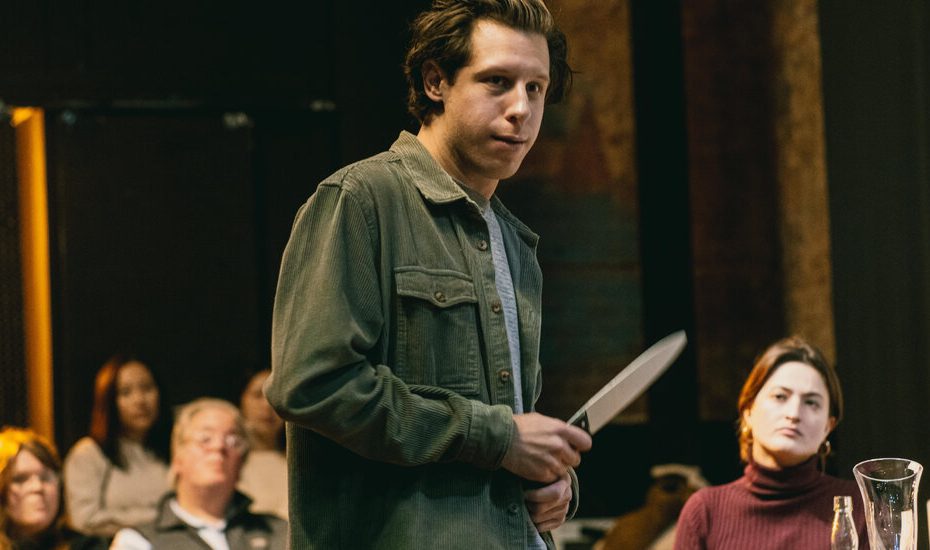Conventional wisdom says that the theater responds slowly to current events, but dramatists such as Ayad Akhtar (“McNeal”) have recently called to tell stories about artificial intelligence, sometimes use to help with writing.
The new game “Doomers” by Matthew Gasda is an addition to that package. Inspired by the 2023 of Sam Altman, the Chief Executive of OpenAi, was written with the help of Chatgpt and Claude. The two chatbots share a dramaturgy credit in the program.
Unfortunately, the hype around that technology does not correlate here with narrative cogency. Although they have a disgusting fictional ex CEO in the middle, and countless characters who are about the danger and promise of AI, “doomers” possess a particularly self -destructive quality, as if it is separate that his audience is invested from the beginning – to go.
This is a crisis -driven story on a single night in San Francisco, just after a technology company, MindMesh, has rejected his leader, Seth (Sam Hyrkin). Locked up at home, he plans to get his job back, while the panic board of the company tries to find out how he can move forward without him.
A sociopath who misses the required charm, Seth tells his confidants: 'I will not compromise; I will not admit the error. I was fired for making miracles. '
That is not how the board would say it, but we do not meet them until Act II. The first act, by far the stronger half of this meandering game, is about the perilous situation of Seth.
Gasda, who also directs this production, has the double cast, with 10 actors who appear in every version. The cast that I saw at Artxnyc in Manhattan was nicely polished. (Most shows in New York are at the Brooklyn Center for Theater Research in Greenpoint in Greenpoint.)
But the characters erupted in flagrant improbable monologues, such as when Alina (Zsuzsa Magyar), the meticulous Chief Safety Officer of the company, her colleagues tells about disturbing recurring dreams, one of them lively sexually.
More difficult is that their ethical arguments about AI are again in the feeling when you have followed the issue, and not credible if things that these people would say to each other under these circumstances. There is also the feeling that the piece, whose New York Run will overlap in March with a separate production in San Francisco, both try to mirror a culture if it takes itself.
A law I -line, in which Seth uses a blemish for the intellectually disabled people to describe some board members, laughed a nasty laugh at the show I saw. Yes, that word has a revival and is honest play for a playwright to use, but should someone else really pronounce it in ACT II? Likewise, a joke of a polycule would probably be enough.
There were notes in Elon, not a last name, but that does not have to be. (Seth, irritated by Alina, Snipes: “You should just get Elons Baby if he wanted to.”
'Doomers' is marketed as '' Glengarry Glen Ross 'for the AI era', but I suspect that the HBO drama shows some responsibility for the misconception of the piece that board strategies and business jargon make for it Rowing theater.
The second act is entirely about the management of MindMesh, but lines such as “We are here to supervise and reduce risks and potential crime” are deadly without characters and situations to interest us in the effort. For a play that takes place at such a loaded moment, it has a striking lack of tension.
Maybe it's up to the dramaturgs, chatgpt and claude?
When I asked the publicist about the credit of that program, he told me that it was “a tongue-in-cheek joke” that Gasda “had played with Claude and Chatgpt who asked the AI questions so that he would understand the technology about which he was writing. “
Human mistakes then. Oh well.
Doomers
Until 19 April in the Brooklyn Center for Theater Research, Brooklyn and Artxnyc, Manhattan; Doomers.fyi. Duration: 2 hours.

